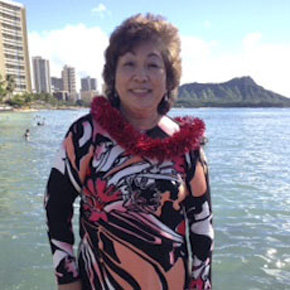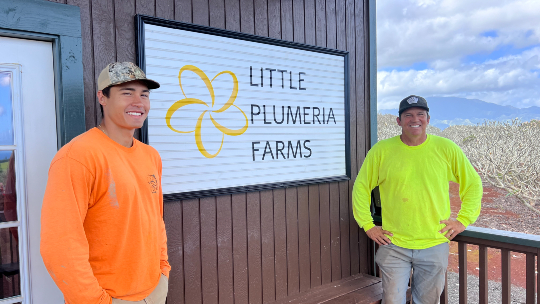When the house is full of kids, parents often dream of the day they’ll get a little peace and quiet.
But after the kids fly the coop and start life on their own, it can get a little too quiet.
Empty nest syndrome is not a clinical term, but it’s a popular one to describe the depression and loneliness parents (especially moms) can feel after their children leave home.
Hawaii mom Jenny Hausler had a Brady Bunch type of situation after she married her second husband. Both had kids from previous marriages, and between the two of them they had six kids with a seven-year gap between the oldest and youngest.
(Pictured below: Jenny Hausler poses for a photo in Waikiki. The retiree said her empty nest offered new opportunities for travel and volunteerism.)
 As the kids grew up, they moved out. Some moved to the mainland.
As the kids grew up, they moved out. Some moved to the mainland.
Then one day, after their youngest left the house, Hausler and her husband realized they had an empty nest.
They coped by adopting two puppies and focusing on the positives of their new living situation.
“I thought, wow, we have so much more room here and things stay where you put them. Like a pair of scissors or whatever. Before, things were always getting lost,” Hausler told me.
She added: “Frankly, it’s a lot cheaper with an empty nest because we don’t need as much food. Plus there’s less laundry and household chores.”
Psychologist Dr. Doug Schwartzsmith says the responses to having an empty nest can vary from feeling sadness and loss to freedom and exhilaration.
Some warning signs of depression include lack of interest in doing things, low energy, problems concentrating, sadness or crying and malaise.
“We all have our ups and downs with everything,” Schwartzsmith said. “The basic benchmark (of when to be concerned) is when it interferes with your enjoyment and functioning in your life.”
So what to do if you think you might be battling depression?
He recommends:
- Call your social support system — talk to friends and family.
- Consider returning to or beginning therapy.
- Activate your mind and body. Go outside and get exercise and sun.
- Regulate your sleep times.
(Pictured below: Jenny Hausler holds her sixth grandchild, Ella, during a visit to Memphis, Tenn. Hausler said it’s not easy to see your kids move far away, but she’s supported them.)
 Hausler said when kids leave the house one chapter of your life as a parent closes, but another can open.
Hausler said when kids leave the house one chapter of your life as a parent closes, but another can open.
“I feel a lot of parents live through their children and so when they’re gone, it’s like they don’t know who they are anymore,” she said. “I feel that you have to develop other interests. You finally have the chance to do what you want to do, when you want to do it.”
One of the things she always wanted to do in her retirement was volunteer work. Now retired at 65, Hausler volunteers for three organizations whenever she’s not traveling (thanks to her newly-found disposable income).
She adds, “I feel like it’s our time now.”




